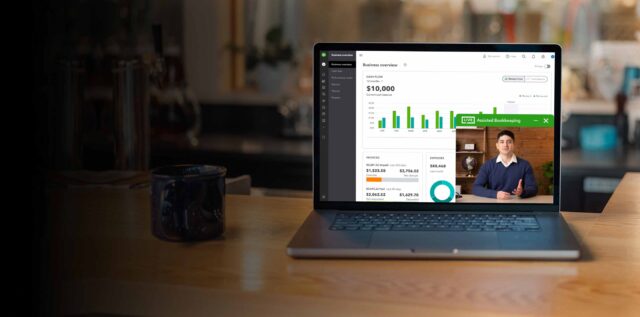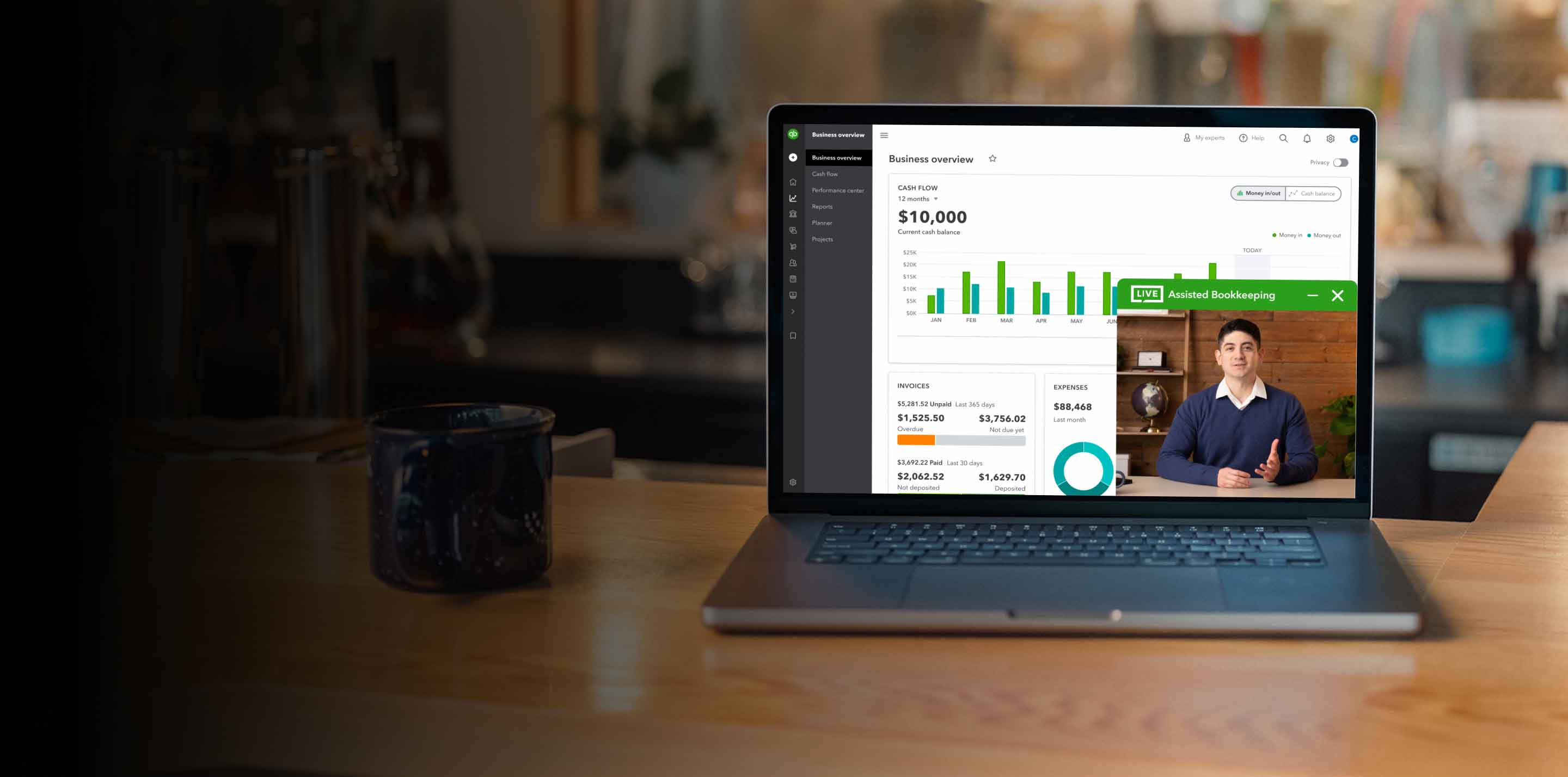Best Accounting Software for Cleaning Business: Streamline Finances!
QuickBooks Online and FreshBooks top the list for the best accounting software for cleaning businesses. Both platforms offer robust features tailored to handle financial management efficiently.
Managing the finances of a cleaning business requires tidy and meticulous accounting software. QuickBooks Online is renowned for its comprehensive suite, catering to small to mid-sized companies with features such as invoicing, payroll, and expense tracking. FreshBooks appeals to those seeking a user-friendly interface with an emphasis on time tracking and client billing.
This introductory overview zeroes in on the significance of finding the right accounting solution. It leverages streamlined operations for small businesses, especially in the cleaning industry, where margins and time management play crucial roles. Choosing a capable software platform is instrumental for financial oversight and ensuring the business’s profitability and sustainability. With the right tool, owners can focus more on customer service and business growth than on backend number-crunching.
Introduction To Accounting In The Cleaning Industry
When running a cleaning business, sharp focus on finances ensures success. Just as dirt hides in corners, overlooked financial details can cost a business. Good accounting helps with clear visibility on income and expenses, and aids in making smart decisions. With the right tools, financial management becomes less of a chore and more of an asset.
Understanding The Financial Needs Of A Cleaning Business
- Budget Tracking: Knowing where every dollar goes.
- Invoicing: Efficient billing for services rendered.
- Payroll Management: Timely payments to maintain a happy workforce.
- Tax Compliance: Meeting legal obligations without stress.
Challenges In Managing Finances For Cleaning Services
- Erratic cash flow from irregular contracts.
- Tracking expenses across multiple job sites.
- Maintaining up-to-date financial records.
- Adhering to various tax requirements.
The Role Of Accounting Software In Streamlining Operations
Accounting software simplifies complex tasks. It turns time-consuming number crunching into a swift process. With features like automated invoicing, expense tracking, and real-time financial reporting, these tools provide a clear picture of financial health. Thus, they are key to a cleaning business’s efficiency and growth.
Criteria For Choosing The Right Accounting Software
Running a cleaning business demands more than just managing teams and supplies. Tracking finances is crucial. The right accounting software simplifies this task. But how do you choose? Here, we’ll explore key criteria to help select the best fit for your cleaning business.
Key Features To Look For In Accounting Software
Selecting the ideal software begins with identifying essential features:
- Invoicing: Generates custom bills for clients.
- Expense Tracking: Monitors outgoing funds easily.
- Payroll Management: Handles employee payments and tax forms.
- Financial Reports: Creates profit and loss statements swiftly.
- Integration: Works with other apps you already use.
Compatibility With Cleaning Business Operations
The best software mirrors your business workflow. It should:
- Match Services: Align with the types of cleaning jobs you do.
- Manage Clients: Keep customer data organized and accessible.
- Schedule Jobs: Offer calendar functions for planning.
Assessing Cost-effectiveness And Scalability
Value for money is key. Consider:
| Initial Cost | Ongoing Fees | Upgrade Expenses |
|---|---|---|
| Affordable startup | Transparent subscriptions | Reasonable growth costs |
Growth potential without breaking the bank is essential.
Evaluating User Interface And Ease Of Use
A simple, intuitive interface saves time and frustration. Check for:
- Clear Layout: Find features you need quickly.
- Usability: Learn the system with minimal training.
- Access: Use the software on various devices.
Importance Of Customer Support And Software Updates
Support ensures your software runs smoothly:
- Responsive Help: Get quick answers to queries.
- Regular Updates: Stay current with the latest features.
- Training Resources: Learn how to use new tools.
Top Accounting Software Options For Cleaning Businesses
Choosing the right accounting software is like picking the perfect cleaning tool. It’s about finding a solution that fits the unique needs of your cleaning business. Whether managing invoices, tracking expenses, or monitoring budgets, the right software streamlines operations.
Comparative Review Of Popular Accounting Software
Many options exist, each with unique features. Let’s compare popular accounting software to find the best fit for your business.
QuickBooks Section
Quickbooks: A Versatile Solution For Various Business Sizes
QuickBooks adjusts to different business sizes. It offers modules like payroll, taxes, and inventory. Small to medium businesses benefit most from its diversity.
FreshBooks Section
Freshbooks: Simplifying Invoicing And Expense Tracking
FreshBooks is ideal for those who prioritize invoicing and expense tracking. It’s user-friendly with time-saving features.
Wave Section
Wave: An Affordable Option For Small Cleaning Businesses
Wave stands out for small businesses needing free, fundamental accounting tools. It simplifies bookkeeping and is easy to use.
Xero Section
Xero: Robust Features For Growing Cleaning Services
Xero offers a full suite for growing businesses. Its mobile app keeps finances in check on the go.
Zoho Books Section
Zoho Books: Integrating Crm With Financial Management
Zoho Books ties CRM and financials together. This integration is powerful for customer-focused businesses.
Integrating Accounting Software With Cleaning Business Operations
Integrating Accounting Software with Cleaning Business Operations is essential in today’s fast-paced market. A well-chosen system simplifies financial tasks. It ensures you focus on your client’s needs over spreadsheet management. Let’s explore the benefits of seamless integration.
Automating Invoicing And Billing Processes
With automated invoicing and billing, efficiency is a guarantee. Say goodbye to manual data entry errors. Enjoy the comfort of sending out invoices quickly. This method reduces delays in payments. It means better cash flow for your business.
- Automatically generates invoices after service completion
- Speeds up the billing cycle
- Minimizes human errors
Efficiently Managing Payroll And Employee Finances
Payroll demands precision and timeliness. The right software takes the stress off your hands. It calculates wages and tax deductions accurately. It even processes direct deposits. Happy employees lead to a productive workplace.
| Feature | Benefit |
|---|---|
| Auto-calculate wages | Reduces errors |
| Tax compliance | Saves from penalties |
| Direct deposit | Convenient for staff |
Tracking Expenses And Revenue For Financial Insight
Real-time tracking keeps your business healthy. Understand where every penny goes. Spot trends in expenses and revenues. Make informed choices about where to cut costs and how to increase profits.
- Monitor real-time cash flow
- Identify financial trends
- Optimize budget allocation
Using Software To Generate Financial Reports For Decision-making
Decisions need solid data. Financial reports from accounting software offer that. They provide snapshots of business health. Use them to develop strategies and plan for growth. It’s all about making smart moves for future success.
- Balance sheets
- Profit and loss statements
- Cash flow analysis
Adopting Mobile Accounting For On-the-go Business Management
Running a cleaning business requires mobility. Mobile accounting matches this need. Access financial data anytime, anywhere. Address client inquiries on-site. Issue invoices post-job completion. It heightens efficiency and impresses clients.
- Access data on mobile devices
- Respond to financial queries instantly
- Elevate client satisfaction
Making The Most Of Your Accounting Software
Mastering your accounting software can streamline your cleaning business finances. Efficiency and accuracy are keystones. This guide helps you optimize your accounting process.
Best Practices For Setting Up Your Accounting System
- Choose the right software that fits your business model.
- Categorize expenses for clearer financial oversight.
- Integrate payment systems to merge accounting and billing.
- Automate recurring tasks to reduce manual entry errors.
Training Staff To Utilize Accounting Software Effectively
Develop comprehensive tutorials tailored to different user levels. Arrange regular training sessions for updates or new features. Encourage staff to practice transactions in a demo environment.
Regularly Updating Financial Data For Accurate Records
Make it a routine to enter transactions daily. Regular updates maintain up-to-date financial insights. Check for any discrepancies to ensure accuracy in records.
Leveraging Software Analytics To Improve Business Performance
- Monitor dashboards for real-time financial health.
- Analyze revenue streams to identify profitable services.
- Review costs periodically and adjust for efficiency.
- Use forecasting tools to plan future business growth.
Planning For Tax Season With Accounting Software
Set aside tax funds automatically with each transaction. Use built-in tax calculators to estimate dues early. Generate reports for easier tax filing preparation.
Conclusion: The Future Of Accounting In The Cleaning Business
As we delve into the conclusion section, let’s explore how technological advances shape the future of accounting for the cleaning business. With the adoption of modern solutions, finance management gets more efficient. The choice of software today can define tomorrow’s success in the highly competitive cleaning industry.
The Growing Importance Of Digital Finance Management
Digital finance management stands at the forefront of business innovation.
- Automates tasks and reduces errors.
- Delivers real-time data for better decision-making.
- Improves customer experiences with streamlined billing.
Emerging Trends In Accounting Software For Service Industries
New trends in accounting software are revolutionizing how services operate.
- Integration with bank feeds and payment processing.
- Use of cloud-based platforms for accessibility.
- Artificial Intelligence (AI) for predictive analytics.
Final Thoughts On Selecting And Utilizing The Best Software
Selecting the right software requires a thoughtful approach.
| Feature | Benefit |
|---|---|
| User-friendly Interface | Ensures ease of use and team adoption. |
| Customizable Reports | Provides insights tailored to your business needs. |
| Responsive Support | Offers help when you need to resolve issues quickly. |
Invest in solutions that grow with your business. Strong financial management is the key to success.

Frequently Asked Questions On Best Accounting Software For Cleaning Business
What Type Of Cleaning Business Makes The Most Money?
Commercial cleaning businesses often generate higher profits due to large-scale operations and consistent contracts. Services like office cleaning, medical facility sanitation, and industrial cleaning tend to be the most lucrative niches.
What Business Structure Is Best For A Cleaning Company?
The best business structure for a cleaning company often is a Limited Liability Company (LLC) due to liability protection and tax flexibility. Sole proprietorships are also common for starting small, with simpler setup requirements. Always consider your specific financial and operational needs.
How Can I Make My Cleaning Business Legit?
To legitimize your cleaning business, register it with your state, obtain necessary permits and licenses, purchase insurance, manage finances through a separate business account, and comply with tax requirements.
What Features Do Top Cleaning Business Software Offer?
Top accounting software for cleaning businesses typically offers features like invoice management, expense tracking, client billing, scheduling, payroll, and financial reporting. The integration of these functions streamlines financial operations, especially tailored for the cleaning industry.
Choosing the right accounting software for your cleaning business is crucial. It simplifies financial management and boosts efficiency. Remember, the best option aligns with your specific needs. Explore features, support, and scalability. Invest wisely to keep your financials spotless and your business flourishing.







